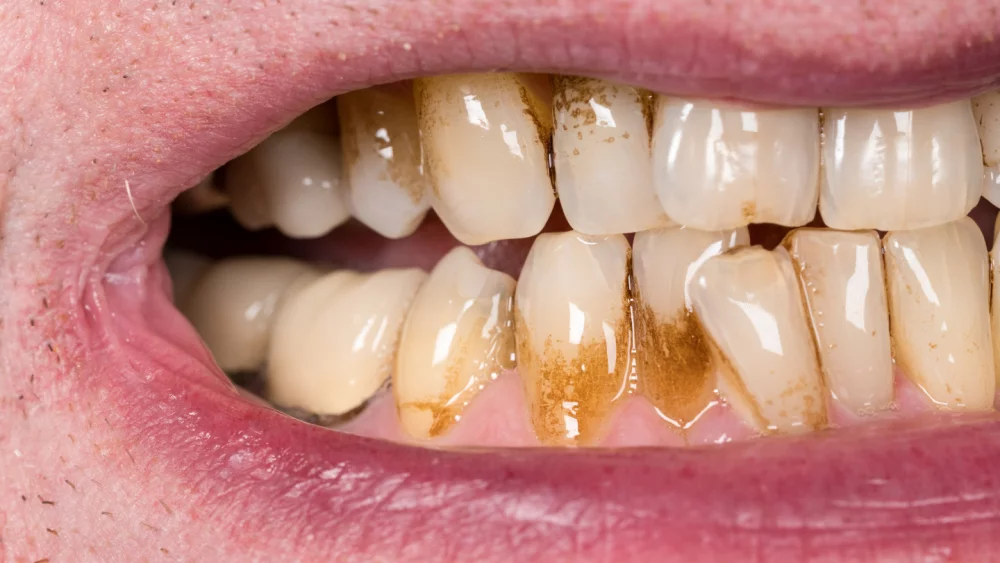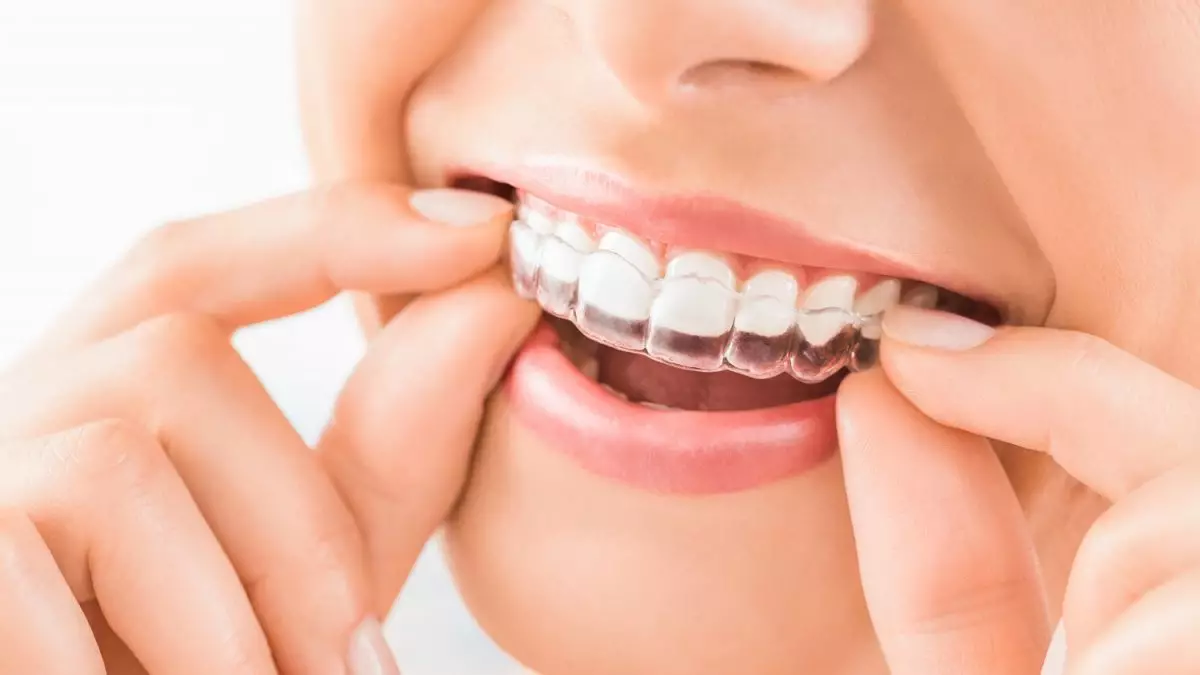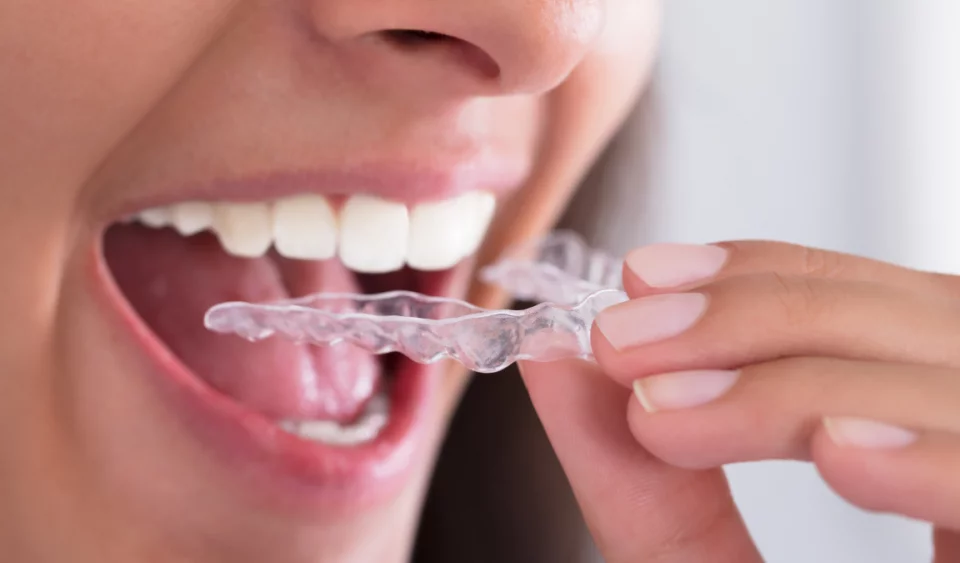
Breaking Down the Ins and Outs of Dental Insurance and Maximizing Your benefits
January 28, 2023
How To Get Rid Of Teeth Stains?
March 8, 2023Key Takeaways:
Prevalence and Causes:
Teeth grinding, or sleep bruxism, often correlates with stress, with a significant increase noted during stressful periods like the COVID-19 pandemic.
Symptoms and Diagnosis:
Symptoms include headaches, jaw pain, and worn enamel. Diagnosis can be made by a dentist during an examination, through symptoms noticed by a partner, or by self-awareness of morning symptoms.
Treatment with Occlusal Guards:
Occlusal guards are custom-designed devices fitted by dentists to cushion teeth and prevent damage caused by grinding. Unlike sports mouthguards, they specifically protect teeth from nighttime grinding rather than impacts during sports.
Do you wake up with headaches or jaw pain? Does your sleep feel unrefreshing? Do you have a partner who complains about grinding noises at night? If any of these symptoms sound familiar, you should talk to a dentist. As surprising as it sounds, dentists can help you to sleep better by fitting you with a night guard. Providing patients with occlusal guards to prevent teeth grinding is only one of the many ways our dentists at Matthews Family Dentistry help our patients to rest better and have healthier teeth.
What Teeth Grinding?
An occlusal guard protects your teeth from nighttime grinding. Teeth grinding has close links to stress. During 2021, 71% of dentists surveyed had more patients experiencing dental grinding in the heat of the pandemic than the previous year. If you have daily stress, you may grind your teeth at night without realizing it. Overall, studies have shown about 8.6% of the population has a chronic problem with teeth grinding at night, also known as sleep bruxism.
There are a few ways that people discover they grind their teeth at night. First, you may have a partner who hears your teeth grinding at night. However, you may still grind your teeth even if your partner does not say anything about it.
You may notice unusual symptoms upon waking up in the morning that indicates a night of grinding your teeth. Headaches, pain in the temples, neck aches, and jaw pain commonly occur in people who clench or grind their teeth at night.
Finally, your dentist may discover teeth grinding during an exam or cleaning. They may notice cracked teeth, worn enamel, or damaged crowns that may indicate wear from grinding.
The best treatment for teeth grinding effects is by cushioning the teeth with an occlusal guard.
What Is an Occlusal Guard?
You may know occlusal guards by one of their many other monikers, such as night guards, nocturnal bite plates, mouthguards, or dental guards.
Like many dental products, occlusal guards are often sold over the counter in pharmacies. However, these one-size-fits-all or self-fitted models don’t work well for everyone. The International Congress of Oral Implantologists warns of negative effects on oral health by improperly using an over-the-counter night guard. A better alternative is a customized model from your dentist.
Occlusal guards that a dentist custom-designs for your teeth fit and perform better at preventing headaches and jaw pain from nightly bruxism. Some patients even can benefit from smaller NTI-Tss Plus to treat tension headaches or migraines. Talk to your dentist today to find the best solution for your morning pain.
Is an Occlusal Guard the Same as a Mouthguard for Sports?
Occlusal guards and mouthguards for sports may both provide protection for the teeth but do not have the same designs or functions. Mouthguards for sports protect the teeth from avulsion during impacts. However, occlusal guards protect the surfaces of teeth from grinding against each other at night. The two are not interchangeable.
Who Needs an Occlusal Guard?
If you have any of the following signs of nighttime bruxism, talk to your dentist about getting an occlusal guard:
- Aching in the temples
- Headaches upon waking up
- Unrestful sleep
- Jaw pain or inflammation
- Chipped teeth
- Daytime sleepiness
- Worn enamel on the teeth
Without treatment, you could crack a tooth or continue to experience pain. Some people who have nighttime grinding will have headaches and jaw pain throughout the day, which can negatively impact concentration at work. You can get lasting relief from your pain by using a dental device that corrects the grinding that causes the aching.
How Occlusal Guards Work to Prevent Teeth Grinding
Night guards that protect you from bruxism provide a cushion between your teeth. With a barrier between your top and bottom teeth, your jaw muscles can’t work as hard at night. Plus, your teeth avoid damage caused by the hard enamel of the top and bottom teeth rubbing against each other.
How to Use an Occlusal Guard to Prevent Teeth Grinding Symptoms
While wearing a nightguard overnight while you sleep can help, make it a part of several treatment methods. First, look at stress in your life. Teeth grinding increases during stressful times. Find ways to release emotional strain in your life. Exercise, talking with friends, taking up a hobby, journaling, and yoga are possible ways to help you relax.
Before bed, consider doing meditation to help your entire body to relax and to better transition into sleep. Talk to your dentist about whether you may need medication to help your body to relax as you become used to wearing the occlusal guard.
Wear your guard over your teeth as directed by your dentist nightly to protect your teeth. Over time, you should notice relief from your headaches and jaw pain.
How to Get Occlusal Guards to Protect against Teeth Grinding
You cannot find customized occlusal guards anywhere. You must visit your dentist to get a model designed for your mouth.
Taking a trip to the dentist is also essential to see if you have dental damage caused by bruxism. Your dentist can treat cracked teeth or damaged crowns before fitting you for a nightguard.
Daytime sleepiness and headaches may not always have bruxism as their cause. Your sleep problems may have sleep apnea or snoring as their source. Sleep dentists can treat snoring with oral appliances that help you to breathe easier at night.
If you think you may need an occlusal guard, schedule a visit with your dentist.
Contact Us at Matthews Family Dentistry if Your Teeth Grinding Gives You Problems
If you have signs of bruxism, see us at Matthews Family Dentistry. We have two dentists who are members of the American Academy of Sleep Dentistry. They can help you to sleep better if you have sleep apnea or fit you with a nightguard to relieve teeth grinding.
You deserve to wake up fully rested and without pain. Contact Matthews Family Dentistry to make it happen with the proper treatment for your sleep problems.



